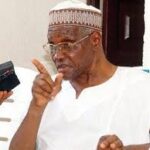One of the realities of Nigeria is that every administrative decision or process is read as and understood as being political. Currently, INEC is once again trying to update its polling units after previous attempts have failed. Each attempt has been sabotaged by controversies with politicians from each state, zone and region staking claims that there should have more of the new polling units to be created on the principle of “equal sharing.” When they perceive that they might be “short-changed” they quickly develop conspiracy theories to discredit the effort. The underlying utility of the exercise never succeeds in getting a voice.
Polling Units are central to the electoral process as that is the location where people are able to go and exercise their mandate. The Electoral Act 2010 (as amended) defines a Polling Unit (PU) as “the place, enclosure, booth, shade or house at which voting takes place under this Act”. Consequently, Polling Units (PUs) constitute the basic structure of Nigeria’s electoral system and democracy. They are the nerve centres at which voters contact the Commission during elections. As such, it is exceedingly important that Polling Units are not only ready and conducive to receive voters, but that they are also well-organised and secure for the set of activities that occur in them on Election Day. Indeed, well-organised and efficiently run Polling Units are emblematic of the quality of the entire election ecosystem.
There are 84 million voters in Nigeria using about 120,000 polling units with an additional 56,000 “baby” units created alongside excessively large units. Nigeria has clear principles that determine the location of polling units. Each unit is supposed to have at most 500 registered voters so that voting can end before darkness come in. They are located close to where people live as Nigeria is one of the few countries in the world where vehicles are not allowed on the road on election-day. Everyone should feel they have no impediments to going to the polling unit so places of worship, houses of politicians or prominent individuals are excluded and schools in, particular, are usually selected as neutral grounds where all voters will feel at ease.
According to INEC, over the years, voter access to Polling Units in Nigeria has been declining. For the 2019 General Election, the average number of voters per Polling Unit was about 700 nationally, rising to over 2,000 in the Federal Capital Territory while a specific Polling Unit in Nasarawa State had over 15,000 voters. Furthermore, some Polling Units are located in very difficult places that do not encourage voters to participate in elections, particularly persons living with disabilities. Others are located in places experiencing conflicts or in places under the control of partisan actors. Moreover, because of inadequate Polling Units, many voters have to travel long distances to their Polling Units on Election Day. All these have contributed to low voter turnout at elections, egregious violation of election regulations and guidelines, violence and insecurity. Crowding at Polling Units also constitute health and safety issues in this period of the global COVID-19 pandemic.
The current polling units of 120,000 were determined in 1996 and since then, massive demographic changes have occurred in the country as the population grows and the process of rural-urban migration continues. Our cities have grown enormously over the period and place that were villages outside the city are now part of the urban conglomeration with large populations and no polling unit close to them. As INEC plans over the years to expand polling units have been blockaded politically, the Commission has resorted to stopgap measures such as the creation of “Baby Polling Units”, Voting Points and Voting Point Settlements to address the issue.
One of the problems around previous efforts has been that proposals for expanding polling units have usually been made just before a general election when people are primed to believe conspiracy theories. This time, INEC has decided to commence the process early so that, hopefully, 2023 considerations would not be central to the process. The key problems are as follows. First, there is the problem of inadequate number of Polling Units available to voters due to the transformation of our population dynamics. Second, the inadequacy of Polling Units implies that many of them are overcrowded during elections, which is a recipe for delays, disruptions, violence and apathy. To be sure, overcrowding varies from one area to another due to uneven growth in population. Still, practically all Polling Units have experienced an increased population of voters. Third, the location of some of the Polling Units make access very difficult. For instance, some are located in very physically inaccessible locations, particularly for persons living with disabilities.
In 2014, in the build-up to the 2015 general election, the Commission proposed the “creation and distribution” of “additional 30,027 new Polling Units”. This was with the objective of decongesting overcrowded Polling Units and dispersing voters as evenly as possible to prevent disruptions, delays and violence on Election Day. Furthermore, the exercise was aimed at a spatial distribution of voters, the relocation of Polling Units from unsuitable places to more suitable places and the location of Polling Units within reasonable commuting distances of voters. INEC however gave up the proposal after a series of attacks against them – that they were engaging in a: “disproportional distribution of Polling Units in Nigeria aimed at fostering the dominance of one section of the country over the others for political advantage.”
In Nigeria, politicians believe that Polling Units in their constituency confer political advantages so they want more. Of course, they may know something I don’t know but voting is a game of numbers so as long as the register is accurate, it does not matter how many are “allocated” to the constituency in terms of votes available to be obtained. Be that as it may, they always canvass for more Polling Units, even when they are not necessary in terms of the population size. They see it as an “allocation” of a public good and always fight for more. As a result of this over politicisation, the Electoral Commission has been unfairly accused of being partial and lopsided in allocating Polling Units among sections of the country. In the build-up to the 2015 election, the allegation was that more polling units were to be allocated in the North, relative to the South and that was the issue. The land area, the huge agglomerations that have developed in and around Abuja, most of which had very few or no Polling Units never entered the debate.
It is important that this time, INEC engages sufficiently in consultations with all stakeholders so that they understand what the process is all about. They need to clearly understand the importance of access – the challenges that voters and, indeed, the Electoral Commission experience during elections due to declining access to Polling Units. Secondly, it is important to dissociate the process with the suspicions Nigerians have that population figures are always invented. Abuja was created 40 years ago and the evidence of massive population inflows into the area of millions of Nigerians from all states should be obvious. The Lagos-Ogun zone has also had huge population inflows due to its economic dynamism and creating more polling units in the area is not a political allocation but a vital need to allow all citizens the opportunity to exercise their franchise.

 Join Daily Trust WhatsApp Community For Quick Access To News and Happenings Around You.
Join Daily Trust WhatsApp Community For Quick Access To News and Happenings Around You.


